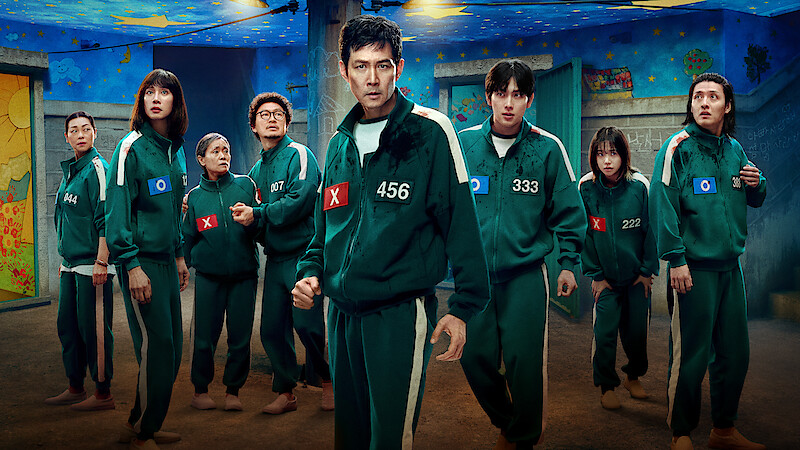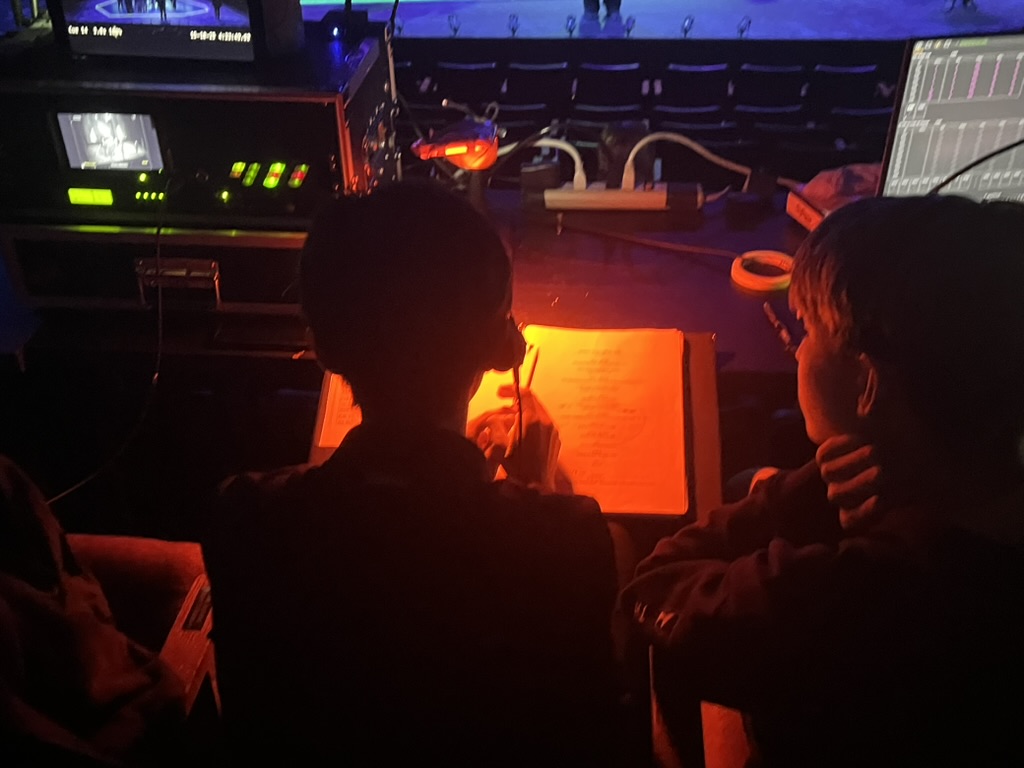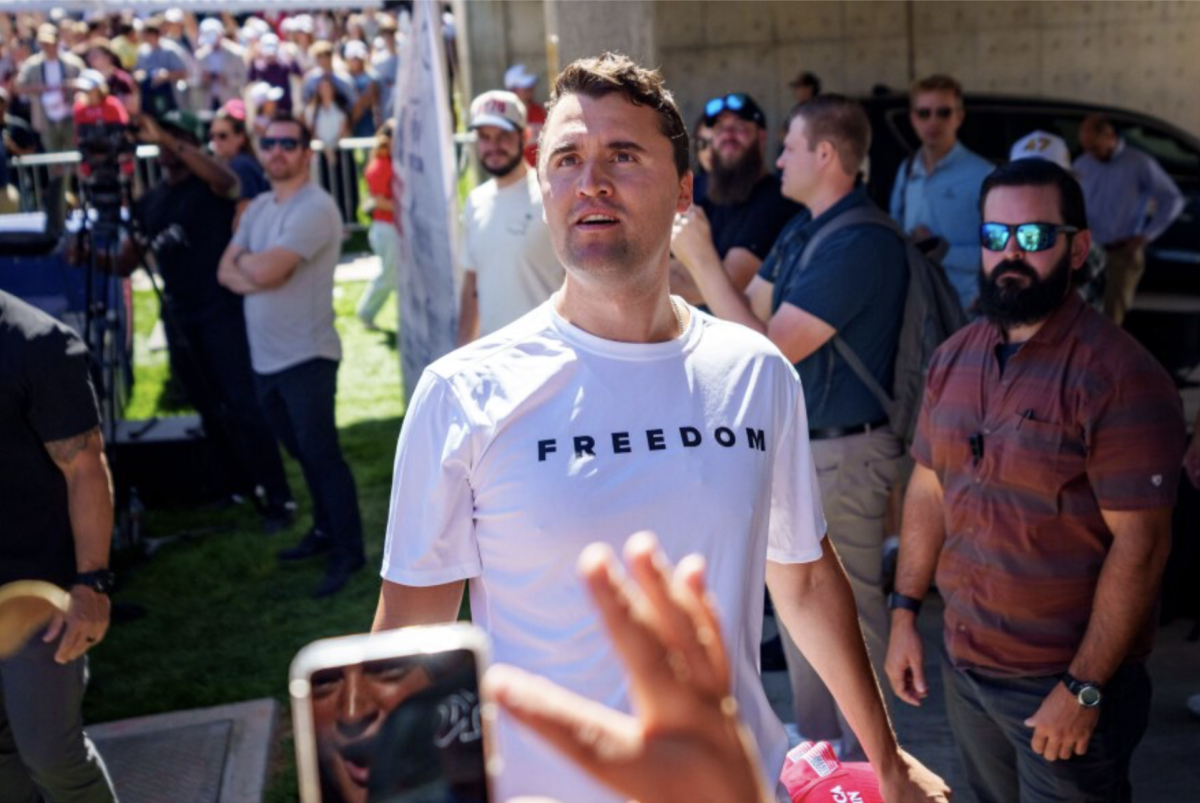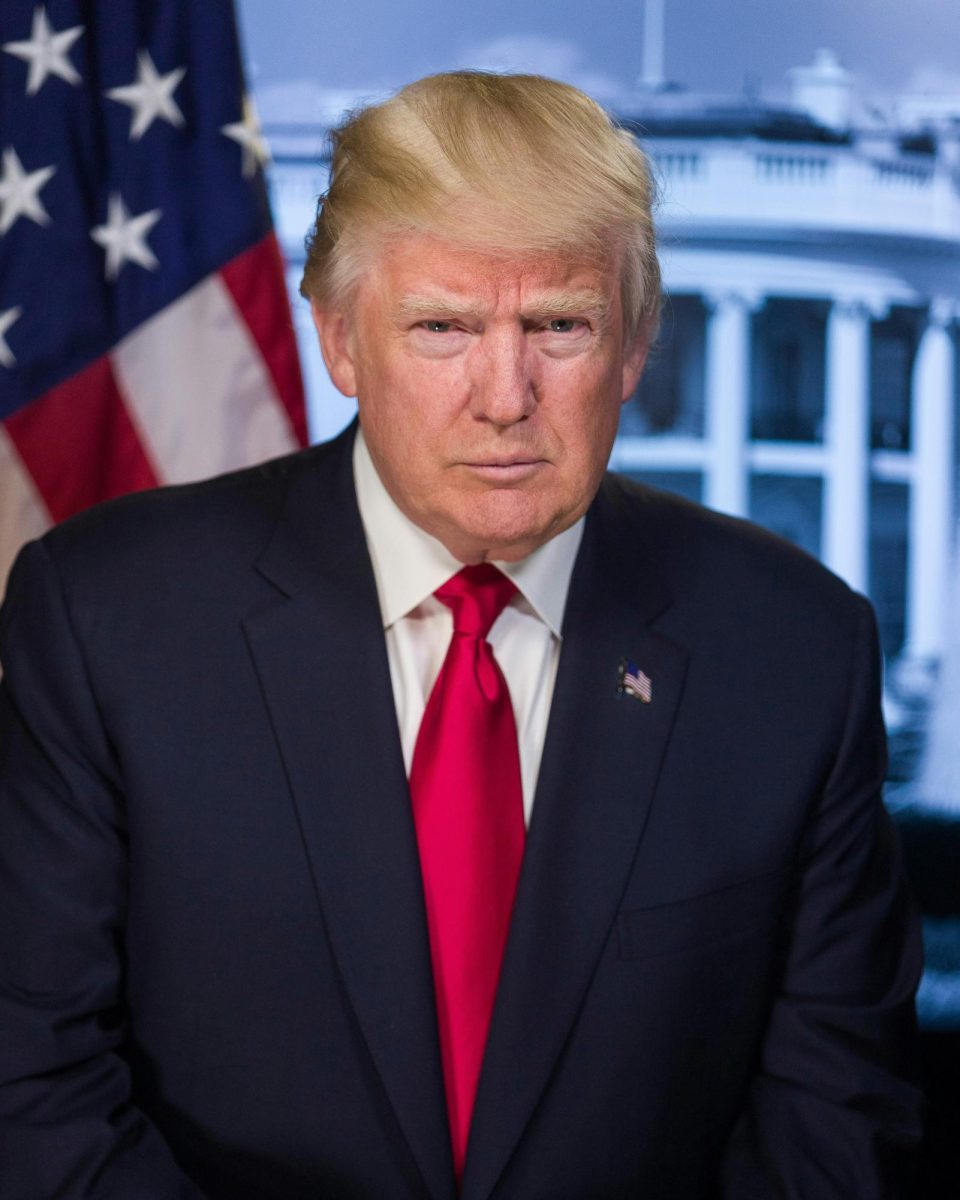Warning: this review contains major spoilers for all three seasons!
Bang. A figure in a green tracksuit falls to the dirt and their player number rings hollow in the air. Numbers. That’s all these people are to the rich VIPs, who watch them die for fun, completely insensitive to their suffering. Numbers that scream, cry, fight to survive in a place designed to destroy the goodness in humans. This is the premise of Squid Game, a groundbreaking Netflix show, whose season 3 finale offered sub-par character development, symbolism, and impact compared to its first two seasons.
Unmined Characters
The part I hated most about Squid Game season 3 was how many questions were left unanswered about characters. Those who argue that the season 3 characters were compelling are basing their claim off of their carefully-built backstories from season 2. Season 3 wasted those character arcs completely. For starters, they wasted Dae-ho’s (Player 388) character by ignoring his season 2 backstory and reducing him to a plot device. Dae-ho was an ex-Marine who joined Gi-hun’s group in season 2, where he was acutely nervous, confident around friends, and softer than other men. Yet, he was overly paranoid and aggressive in season 3.
Dae-ho, after bonding with Jung-bae (Player 390) over their military experience, took part in a rebellion against the Squid Game organization, and in terror, failed to bring the group backup ammunition. He grew up doing feminine activities with his older sisters, not toughening up like his father wanted. A softie, he only joined the Marines because his father thought he’d become “more like a man.” Dae-ho clearly wasn’t built for a military life, but before Gi-hun kills him for failing the rebellion, his confession — “I lied about being a Marine to be cool like you guys” — didn’t add up. Being “cool” isn’t what his season 2 character was concerned about — lying to appear more masculine would make sense. We needed time to explore that. His character and early death just became a moral mirror for Gi-hun’s guilt and brokenness.
If done well, Dae-ho’s character arc could have been built to showcase what toxic masculinity can do to degrade someone’s self-esteem. Killing him, along with much of the main cast, in the second episode was too early. The show didn’t explore Dae-ho’s past and his relationship with masculinity, or use his character to showcase anything major about society. A wasted opportunity if you ask me.
Frontman and former Squid Game winner Hwang In-ho’s backstory left us with the most questions, but none were really answered. In season 2, In-ho joined the games next to Gi-hun, obsessed with breaking his faith in humanity. They were two sides of the same coin — In-ho chose darkness, Gi-hun chose redemption. And for In-ho, Gi-hun stood for who he could have been, had he not lost faith. And yet we still didn’t know much about In-ho’s backstory.
Several questions remain: Why was In-ho picked by Oh Il-nam, the founder of the games, to become the Frontman? What broke him beyond repair and why did he lose his faith in humanity? We only saw a flashback to his decision to kill other players in the middle of the night during his games — a task he also gave to Gi-hun — only to display how different the two were in the same circumstance. Nothing else about his past. No real confrontation between In-ho and Jun-ho; no answers to our questions. It all felt like a buildup of tension just for nothing to happen.
Finally, a character whose complexity should have been more honored in his arc, Myung-gi (Player 333). I was upset that they made him, a flawed yet caring boyfriend, suddenly become some evil psychopath in the last two episodes. Myung-gi was a living embodiment of a timeless dilemma: money or love? I agree with actor Im Si-wan that Myung-gi, while imperfect, “truly loved Jun-hee.” The actor said to TheWrap, “He has selfishness and greed within him, but I think his prime motivator was to come out with Jun-hee alive.”
The problem I had with Myung-gi’s 180-degree flip — choosing money over his baby — was the timing of it, not its inaccuracy. It felt jagged and rushed. Myung-gi mainly loved Jun-hee — the baby was an afterthought — so he wasn’t really there for his daughter, but he wasn’t maniacal or heartless. When others tried to harm his baby, he was uncomfortable and enraged. Even in the minutes before he suddenly became evil, he did all he could to protect his baby from a distance.
His entire character arc portrays him as calculated, cool, and intelligent. But in his final moments, he lacks all of those traits. Even under the extremely stressful situations in Squid Game, it’s hard to believe that Myung-gi would suddenly lose his cool despite keeping it throughout the other challenges. At least he wouldn’t forget to push a button before wrestling Gi-hun and falling to his death. His incredibly fast flip — with no on-screen character development or psychological breakdown to come before it — is what made his character arc sloppy. It doesn’t make sense for him to suddenly become so vile, cruel, and ultimately rash.
While I have been critiquing much of Squid Game’s final season, I do need to commemorate some moments related to character development that I found utterly symbolic and tastefully done. After seeing what taking hidden drugs had done to Thanos and Nam-gyu, Min-su’s (Player 125) former bullies, I expected a similar reaction out of him and a role reversal between him and Nam-gyu. But Min-su stayed true to his character, and was overwhelmed by guilt and sorrow. Min-su, while cowardly and meek, was the embodiment of typical humans. His character receives the most hate for not helping out Se-mi, his friend, when she was being stabbed to death by Nam-gyu in season 2; but I believe this is the natural reaction of anyone placed in Squid Game. We would all want someone to become a hero and help, but in horrifying moments, many of us would freeze. Human nature is built on survival and self-preservation, not on self-sacrifice and hero-syndrome. Min-su’s character was tastefully written and his arc, to me, felt the most complete.
In his final moments, he kicked the air, thinking it was Thanos and Nam-gyu hanging onto the ledge and taunting him; and when Myung-gi stuck out the pole to push him to his death, he saw Se-mi’s extended hand. His smile upon taking it — a clear reference to his earlier guilt from abandoning her in the Mingle Game (season 2) — and holding her hand as he fell was heartbreaking to watch. Min-su stuck true to his mellow nature until the end and proved that humans can still retain morality under the worst circumstances possible. He found peace with his guilt, holding hands with the person he believed he betrayed. What a cinematic masterpiece.
As for Hyun-ju (Player 120), another beloved character who died during the Hide and Seek game, I actually think her death was beautifully timed. While predictable, its emotional impact was still heavy and haunting. It was a natural place for her character arc to end — she had served her purpose: the transgender sargeant who carried the rebellion, stayed loyal to her friends, and proved to everyone that beauty is in our souls, not just our bodies. The final touch of Geum-ja (Player 149) stroking her hair and showing off her earrings was truly heartbreaking. A well-done death… but ultimately well-done because of how well season 2 revealed the various layers of her character.
Playing it too safe with symbolism
Squid Game’s symbolism — one of its strengths — was original from the get go. By drawing parallels between the game’s horrific, inhumane competition and gambling on horse-racing, it provided a fresh take on societal attitudes towards the disadvantaged and poor. Yet, for a show that’s known for being taboo, season 3’s symbolism unfortunately collapsed into predictability.
The primary example of symbolism comes with Jun-hee’s (Player 222) baby winning the final Korean Squid Game and Gi-hun (Player 456) sacrificing himself to ensure the baby’s survival. Now, I don’t have a problem with Gi-hun dying, but the addition of the baby to the series was a short, predictable way to show life conquering death and hope for a new generation.
While this would prove to be a much bloodier and depressing plot point, it would be more revealing for the baby to die or be killed. In fact, it would be even more realistic — however tragic — if the baby was stillborn, due to the stress and trauma (both physical and mental) Jun-hee endured while pregnant; as well as her premature birth.
There was also a scene where a group of players flocked around Gi-hun, who was holding the baby, and excitedly murmured about murdering it for prize money. They only stopped because a guard announced that, according to the rules, no further violence could occur between the contestants.Director Hwang Dong-Hyuk had said to Entertainment Weekly that the Squid Game finale “would bring out the bottom parts of human nature.” What better way to show that than allow human nature to unfold without any restrictions? It’s taboo to kill a newborn baby and potentially traumatizing, but that is exactly why the world exploded over Squid Game in the first place — it doesn’t obey any mainstream rules and leaves you questioning the goodness in the world around you. I expected this last season to do the same.
Besides symbolism, I felt as if some of the games themselves played things a bit too safe. I was most disappointed by the fifth game, Jump Rope. Compared to Hide and Seek, the previous game, and Sky Squid Game, the final game, Jump Rope falls flat. Most of the players who died during jump rope were pushed off by another player, 096, in hopes of increasing the prize pool. That action is revealing of human nature, but the game itself was poorly designed and showed us barely anything. Once 096 fell off the platform and died, the rest of the players easily made it across. Aside from the dangerous height, Jump Rope is just… jumping. For a semi-final challenge, it lacked any mental exercise or psychological turmoil.
Especially after watching a cast press video, in which the cast played jump rope according to the traditional Korean song, “Little Friend,” it pains me to know just how much they could have done with this game. In the video, the cast played jump rope alongside the tempo and lyrics of “Little Friend,” which contains commands like “come in,” “turn around,” “jump on one foot,” and “touch the ground.” This song also plays during the jump rope game in the actual show, but the game rules don’t require them to follow any commands — they just jump forward. Doing the commands correctly while timing the jump would prove to be much more challenging than jumping across normally.
Lacking substantial impact at the end
And following the failures in fully-developing characters, the ending fell flat. This was largely because they killed off the entire main cast before the final game. Most of the cast — Yong-sik, Hyun-ju, Dae-ho, the shaman lady, Geum-ja, and Jun-hee, were killed as a result of the Hide and Seek game. Yes, I included Jun-hee in this list because after witnessing her break her ankle and give birth, I immediately knew she would die in the next round. So, with the entire cast basically killed off before the final game, the characters who made it past Jump Rope were people we didn’t know.
Watching at least five other unnamed, background characters die was like watching popcorn pop in the microwave. We didn’t care about them like we should have. If we compare this final round to Season 1, every character who played in the end were people we had known for the entire season and were facing their demise at last. We cared about their deaths and felt their immense emotional impact.
The ending was predictable. Myung-gi and Gi-hun fought, Myung-gi died, and Gi-hun chose the baby over himself. The most annoying part about their fight was that no one thought to press the button first before the round started. It provoked the same question: were the writers taking shortcuts to kill off characters? Once Myung-gi had fallen to his death, Gi-hun’s sacrifice was one most people saw coming. To end with a baby winning… that was beyond cliché. I hated what the baby had done to the series — killing the tension, becoming the hyperfixation of every character, and leading to a flat ending. The baby was never a character itself, it was a plot device.
Frankly, not everyone needed to die this season for an impactful message to be delivered. While bloodshed is written into the nature of this series and is inevitable in showcasing the horrors of humanity, there is a limit to how much darkness is impactful and how much is just spilling useless blood. Perhaps I only felt this way because the deaths of the main cast weren’t staggered impactfully throughout the series; or because I was still holding onto the goodness of humanity like Gi-hun. This ending would have been much more impactful if more main characters made it to the final round, faced a moral quandary, and we skipped the baby’s survival or existence entirely.
What I won’t deny is that the final message has merit, albeit cliché. The baby surviving while everyone else had died was a symbol of hope and redemption for the coming generation, even if it was surrounded by the greed and horrors of our current world. In a show full of violence and betrayal, where humans pushed each other to their deaths for money — despite having more than enough — this kind of hope is strangely beautiful. For Gi-hun, his life had no other meaning besides proving to the Frontman that humanity was still worth saving. After witnessing so many deaths and feeling purposeless, even with billions of won, he was miserable and depressed. Gi-hun proved his point by giving up his life to redeem the rest of humanity. His final line before he falls to his death, “We are humans, not horses,” hits hard and directly ties back to the parallels between Squid Game and horse racing.
Conclusion
Ultimately, Squid Game as a whole offers the compelling question of whether or not society is able to be redeemed; whether goodness really can conquer evil. The very essence of humanity and morality is put on the spot. We recognize a familiar cruelty in our world and see how democratic systems fail to justify that cruelty.
We are shown the reality of how power is wielded and who really suffers at the hands of those in power. The allusions to horse-racing, betting, gambling — it all points to the desensitization of society towards those who are disadvantaged; a systemic lack of compassion individuals may not have the ability to change.
Much of my love for Squid Game, however, remains with its first and second seasons. It pains me to know just how much more could have been done with the finale, given all the materials from seasons 1 and 2. It was too simple when it could have been complex. And for such an extraordinary, groundbreaking show, it deserved that level of an ending.





![Jackson Weisser (‘26), who played the title role of Beowulf, explained, “This adaptation specifically portrays Beowulf as having selfless motivations for a lot of his actions, and I think that's really powerful. Being more so a good person than a super physically intimidating person needing to fight all the time, is what I [want the audience to take away] from my performance of the character.”](https://thebishopstower.com/wp-content/uploads/2025/10/Beowolf26_047-800x1200.jpg)
![Leia (‘30) and Sara Park (‘32) ended their combative performance with a yell known as a kiyap. Leia explained with a proud smile, “I realized this when I was little, but not many people see taekwondo every day. For me, it’s a daily occurrence, so it feels very normal…when I do [a performance] in public, everyone’s like ‘Wow, that’s really cool’. So it always reminds me how this isn’t a normal thing in other people’s lives and I think it’s really cool that I can share that.”](https://thebishopstower.com/wp-content/uploads/2025/10/Screenshot-2025-10-02-at-2.07.47-PM.png)







